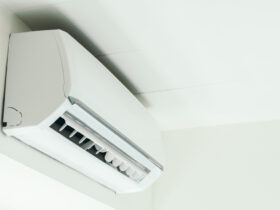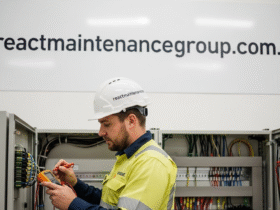Air conditioning is far more than just a luxury; it’s a critical component in ensuring comfort, health, and productivity in our homes and offices. But what exactly is AC? And how does it contribute to our everyday well-being and energy conservation? This comprehensive guide aims to provide answers to these questions and more, shedding light on the intricacies of AC systems.
The History of Air Conditioning
The journey of air conditioning began in the early 1900s, with the invention of the first modern electrical AC unit by Willis Carrier. It was initially designed to improve manufacturing process controls in a printing plant. However, as the benefits became more apparent, the use of AC began to spread to other industries and eventually made its way into our homes.
Types of Air Conditioning Systems
In the sphere of cooling solutions, there is a plethora of air conditioning systems available in today’s market. Each type of system comes with its unique set of advantages and disadvantages. Identifying these differences is key to making an informed decision that best suits your requirements.
- Central air conditioners, for instance, are a popular choice due to their ability to cool large spaces efficiently. They’re an ideal solution for entire homes or sizable commercial spaces. However, the installation process can be complex and costly, requiring a network of ducts throughout the building.
- On the other hand, ductless mini-split systems provide an appealing alternative. They require less invasive installation and offer the flexibility to cool specific rooms or zones within a building. However, they may not be as efficient in cooling larger spaces compared to central air conditioners.
- Window units and portable air conditioners are perfect for those seeking a more temporary or flexible solution. They’re relatively easy to install and can be moved to different rooms as needed. However, their cooling capacity is generally limited to smaller spaces.
- Finally, there’s the innovative hybrid system that alternates between fossil fuels and electric power based on the outside temperature. This system is energy efficient and can save on utility bills, but the initial setup cost may be higher than other systems.
In conclusion, understanding the nuances of each type of AC system is crucial in selecting the most suitable solution for your needs. Whether you’re cooling a small room or a large office space, there’s a system designed to meet your specific requirements. By analysing your needs and understanding the features of each system, you can ensure a comfortable and cool environment.
The Science Behind Air Conditioning
Air conditioning is not merely about blowing cold air into a room. It involves a complex process of heat transfer, whereby the system removes warm air from your environment and replaces it with cooler air, using a refrigerant as the heat transferring medium.
Energy Efficiency in Air Conditioning
With the rising concern for energy conservation, modern air conditioning systems are designed to be more energy efficient. This not only helps save on energy costs but also reduces the environmental impact. Features such as programmable thermostats, variable speed fans, and energy-saving modes contribute significantly to improving energy efficiency.
The Health Benefits of Air Conditioning
Beyond comfort, air conditioning systems can provide several health benefits. They help to reduce the risk of heatstroke, improve air quality by filtering out pollutants and allergens, and can even improve sleep quality by maintaining an optimal sleeping temperature.
Air Conditioning Maintenance and Installation
The longevity and efficiency of your air conditioning system largely depend on two critical factors – proper installation and regular maintenance. The importance of these two aspects cannot be overemphasised. When your AC system is correctly installed, it sets the groundwork for optimal performance. A poorly installed system, on the other hand, may result in frequent malfunctions, higher energy costs, and a shorter lifespan for your unit.
Whether it’s the scorching heat of January or a mildly warm day in April, with proper installation and regular maintenance, your AC system will provide you with the comfort you need. Remember – a well-maintained air conditioner not only cools your home efficiently but also contributes to a healthier living environment, taking care of you and your loved ones.
The Costs of Air Conditioning
The cost of air conditioning involves more than just the initial purchase price. It includes installation costs, energy costs, and maintenance costs. However, investing in a high-quality, energy-efficient system can certainly lead to significant savings in the long run.
The Future of Air Conditioning
The future of air conditioning looks promising, with advancements in technology paving the way for smarter, more energy-efficient, and eco-friendly systems. Concepts like solar-powered AC and smart thermostats are already becoming a reality.
Conclusion
Air conditioning plays a vital role in our lives, providing comfort, enhancing productivity, and promoting health. By understanding how it works, its types, benefits, and costs, we can make informed decisions and optimize our usage for maximum efficiency and comfort. As technology continues to evolve, we can look forward to more sustainable and energy-efficient AC solutions in the future.










Find Us on Socials